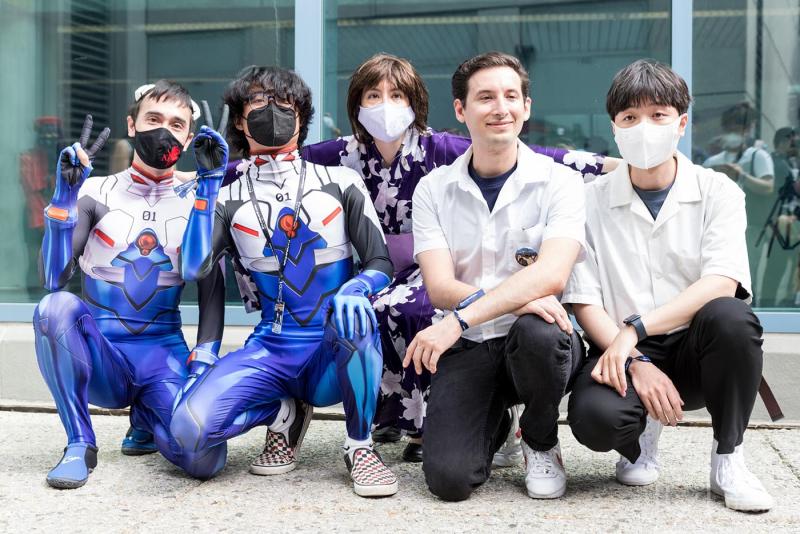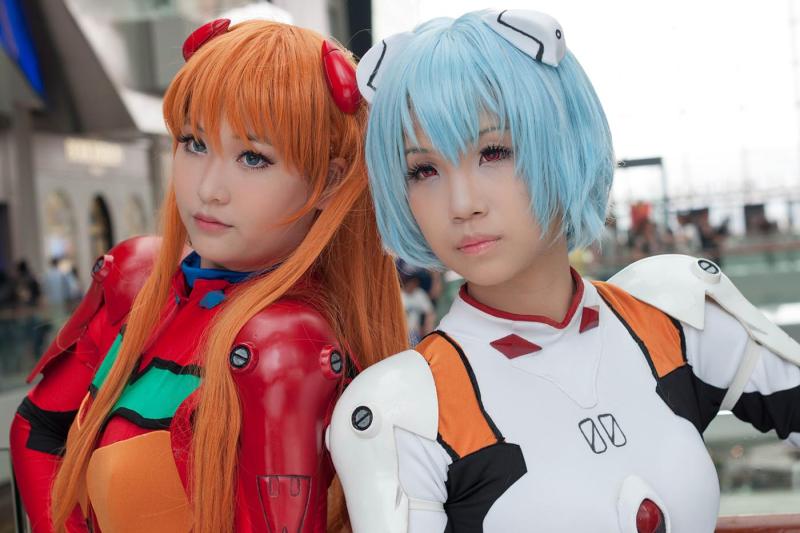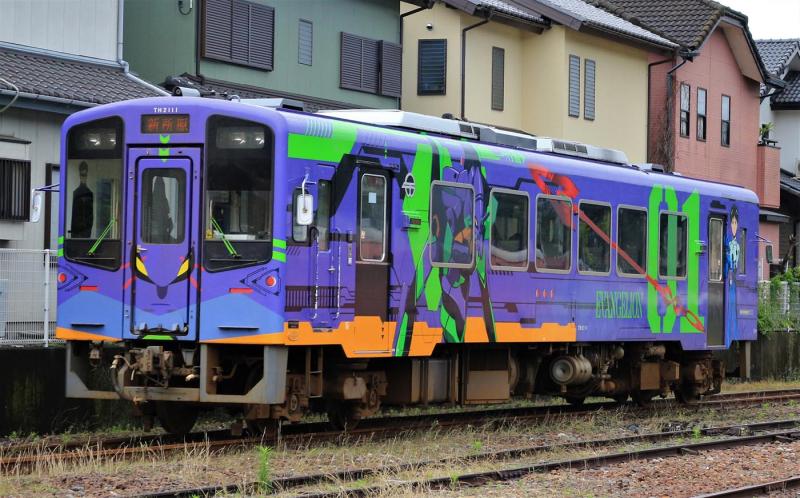
Neon Genesis Evangelion: The Perfect Anime for Japan's Economic Crisis
Imagine you are a Japanese college student in 1995. You studied hard, got into a good university, and followed all the rules. But instead of getting a guaranteed job like your parents' generation, you face a weak economy with no hope in sight. Japan's economic miracle is over, and nobody knows what will happen next. For women, there were few career tracks, and many became OLs (Office ladies).
In 1995, Japan also saw the debut of Neon Genesis Evangelion, an anime about teenagers piloting giant robots against mysterious alien invaders called Angels. The main character, Shinji, is a lonely and anxious teenager with a cold relationship with his emotionally distant father, Gendo. Despite being almost 30 years old, Evangelion remains extremely popular worldwide today.
Neon Genesis Evangelion Official Trailer (2019) for Netflix
What made this anime special was not action scenes, but its focus on psychological problems. Director Hideaki Anno created a story that reflected what young Japanese people were feeling during their country's worst economic crisis since World War II.
Japan's Economic Collapse: The End of the Bubble Era
If you want to learn more about the bubble era, check out this documentary.
To understand why Evangelion became so important, we need to understand Japan in the 1990s. During the 1980s, the nation experienced incredible economic growth during the "bubble economy," averaging 3.89% annually compared to 3.07% in the United States. Real estate prices soared, companies made huge profits, and the stock market reached record levels. Young people could expect lifetime employment at major corporations.
This period created a social contract: if you studied hard, followed the rules, and showed loyalty to your company, you would be rewarded with job security and a comfortable middle-class lifestyle. For women, stability came from marrying a salaryman and becoming a housewife. Japanese society was built around this promise of predictable success.
But in 1991, this bubble burst dramatically. Companies that had been making risky investments suddenly could not pay their debts. Banks lost enormous amounts of money. The stock market crashed, and the economy stopped growing. Japan entered what became known as the "Lost Decade."
The social consequences were devastating. To avoid mass layoffs of older workers, businesses stopped hiring new graduates almost entirely. College students who had followed all the rules suddenly found few job opportunities after graduation.
By 1995, when Evangelion premiered, Japan had been in economic trouble for five years. A whole generation realized this was not temporary but rather their new reality. The guaranteed path from education to stable employment disappeared. Young adults who followed the rules suddenly found themselves competing desperately for fewer opportunities.
This economic trauma created a generation of anxious, uncertain youth who felt abandoned by the system. They had been raised to believe in a specific version of success, only to discover that version no longer existed.
Shinji Ikari: The Anti-Hero Japan Needed
Evangelion's main character, Shinji Ikari, was completely different from previous anime heroes. While 1980s anime featured confident, strong characters like Kaneda from Akira, Shinji is anxious, depressed, and second-guesses himself.
Shinji gets forced into piloting a giant robot for NERV, a special organization created to combat the Angels, but his response is fear and reluctance. He has serious problems with his father, cannot communicate easily with his peers, and spends most of the series having mental breakdowns. He constantly repeats "I must not run away" but clearly wants to escape his responsibilities.
Shinji disobeys an order to retreat, goes into a rage, and has a nervous breakdown.
What makes Shinji's character compelling is how realistically he reacts to trauma. In one memorable scene, he becomes so emotionally overwhelmed during battle that he goes into a violent rage, brutally killing an Angel. Immediately afterward, he has a complete nervous breakdown and tries to run away. When caught and brought back, he continues to pilot despite his psychological damage, trapped in a cycle of trauma and reluctant heroism.
In any other time period, audiences might have disliked such a weak protagonist. Heroes were supposed to be strong, confident, and inspiring. But in post-bubble Japan, Shinji served as a megaphone for the unspoken emotions of struggling youth. Here was a teenager pushed by adults to carry impossible responsibilities, with no real choice. He was told the fate of the world depended on him, but he received no emotional support, no preparation, and no understanding.
This situation perfectly reflected what young Japanese people experienced during the economic crisis. They were expected to compete in a harsh new economy and somehow fix Japan's problems while getting none of the benefits their parents had enjoyed. Like Shinji, they felt abandoned, unprepared, and overwhelmed by responsibilities they never asked for, told that Japan's future depended on them while having no say in that future.
The Second Impact: A Metaphor for Economic Disaster
The show's background involves a catastrophic event called the "Second Impact," a global cataclysm fifteen years earlier that melted the planet's ice caps, shifted Earth's axis, led to massive tsunamis that killed half the world's population, and devastated civilization. The series focuses on humanity trying to survive in a broken world.
This "Second Impact" clearly resembles Japan's economic bubble burst. The older generation created the crisis, but the younger generation had to deal with the consequences. The adults in the show still have power, but they force young people to do dangerous work to keep society functioning.
When these young pilots inevitably break down from the pressure, they are told to continue fighting anyway. This perfectly reflected how young Japanese people felt - that they were expected to solve problems they did not create.
Revolutionary Female Characters and Changing Social Roles
Evangelion also reflected another major change in 1990s Japan: women entering the workplace as equals to men. The economic crisis had forced companies to abandon traditional practices and promote capable women who had been ignored during the bubble years.
In the anime, women are mostly in charge of operations. Captain Misato Katsuragi commands the robot pilots and makes tactical decisions. Female pilots Rei and Asuka are more capable than the male protagonist.
This was revolutionary for Japanese animation. In 1980s anime like Dragon Ball Z, women typically stayed on the sidelines cheering for male heroes. Evangelion showed women as competent leaders, skilled fighters, and strategic thinkers who could operate independently.
Misato chugging beer is one of the iconic scenes of Evangelion.
The show also presented complex portrayals of working women. Misato is extremely competent professionally but struggles with personal relationships and uses alcohol to cope with stress. She eats convenience store food and drinks beer in a messy apartment. This is a portrayal of a busy professional woman rather than an idealized fantasy.
The show portrayed powerful women who had emotional vulnerabilities. Asuka acts confident and aggressive but desperately needs approval. Rei seems emotionless and obedient but has deep psychological issues. Even Misato becomes emotionally unstable around her ex-boyfriend.
This careful balance reflected the complex reality of women's changing roles in Japanese society. While women were gaining more opportunities and recognition, they still faced enormous pressure, discrimination, and personal struggles. The anime acknowledged both their growing power and their continued difficulties.
The Psychology of Economic Trauma and Mental Health
What made Evangelion truly groundbreaking was its detailed focus on psychological trauma. Previous robot anime showed heroic pilots saving the day through courage and determination. Evangelion asked a much darker question: what would piloting a giant robot actually do to a teenager's mental health?
The answer was deeply disturbing. Shinji suffers from panic attacks, depression, and social anxiety. He has an almost pathological need for approval, especially from his absent father. Rei is completely disconnected from her emotions, following orders without question and showing no concern for her own safety. Asuka's aggressive confidence clearly masks deep insecurity and fear of abandonment.
Even the adults are psychological disasters. Gendo is emotionally cold and manipulative, using his own son as a tool. Misato uses alcohol to deal with her trauma. The entire adult world seems incapable of providing the emotional support the young pilots desperately need.
This focus on mental health was revolutionary. Japanese society in the 1990s did not openly discuss depression, anxiety, or psychological trauma. Mental health problems were often seen as personal weaknesses rather than legitimate medical issues.
Director Hideaki Anno was dealing with his own severe depression while making the series. Budget and schedule constraints forced him to focus on character psychology rather than expensive action sequences. This limitation became the show's greatest strength.
The psychological realism resonated powerfully because an entire generation of Japanese viewers was dealing with their own economic trauma. The promise of stability and success had been broken. The rules they had grown up believing no longer worked. The future their parents had enjoyed was no longer available. Of course they felt depressed and anxious - their whole world had changed suddenly and permanently.
A Message for Uncertain Times
Evangelion became culturally important because it gave young people permission to admit they were struggling. In Japanese culture, people are often expected to suffer silently. The anime said it was acceptable to be damaged, scared, and unsure of yourself.
The show's message was not "everything will be fine." Instead, it said "life is traumatic and confusing, but you still have to keep going - and you are not alone in feeling this way." Despite initial difficulties, Shinji, Rei and Asuka eventually connect because of their shared struggles. They may be struggling, but they learn they are not alone.
For young people facing an uncertain economic future, this was exactly what they needed to hear.
The Global Legacy and Continuing Relevance
Evangelion broke new ground in anime by proving that psychologically complex protagonists could be more interesting than traditional heroes. It opened the door for anxious and depressed characters in modern anime and manga, making traditional heroes outdated.
The series has remained popular for almost 30 years, with new films released as recently as 2021. This longevity exists because the themes have become increasingly relevant worldwide.
Economic uncertainty, young people facing impossible expectations, traditional career paths disappearing, adults forcing younger generations to fix problems they created - these issues now exist globally, not just in Japan. The 2008 financial crisis, the COVID-19 pandemic, climate change, and rising inequality have created similar feelings of anxiety and helplessness worldwide.
In many ways, we are all still living in "post-bubble" times. The old certainties about work, success, and the future have disappeared everywhere. The promise that hard work and following the rules will lead to prosperity has been broken in most developed countries. This is why Evangelion's anxious, depressed teenagers still feel relatable to audiences around the world.
The anime also proved that animation could be a serious medium for exploring depression, social problems, and personal struggle in ways that are both entertaining and deeply meaningful.
Beyond its artistic influence, Evangelion provided crucial cultural validation for people struggling with mental health issues. In a world that often expects young people to suffer silently, the series gave viewers permission to acknowledge their own psychological struggles and feelings of inadequacy. It said that being damaged, scared, and unsure of yourself was not only acceptable but was actually a normal response to abnormal circumstances.
Neon Genesis Evangelion stands as one of the most influential anime series, not just for its impact on animation and storytelling, but for its honest portrayal of psychological struggle during times of social and economic change. It remains a powerful reminder that sometimes the most meaningful art comes from acknowledging weakness rather than celebrating strength, and that popular entertainment can provide both escapism and genuine emotional support for people dealing with real-world trauma.
Discussion Questions
- How did Japan’s “Lost Decade” after the 1991 bubble burst shape the themes of Evangelion? In what ways did Shinji and his peers reflect the struggles of young Japanese people during that time?
- The show’s “Second Impact” is compared to Japan’s economic collapse. How does this metaphor help us understand the burden placed on younger generations to solve problems created by older ones?
- How did female characters like Misato, Rei, and Asuka challenge traditional anime roles for women? In what ways did they reflect real changes happening in Japanese society in the 1990s?
- In what ways did Evangelion give young people “permission to admit they were struggling”? Why might this message be just as important today as it was in 1995?
- If you were to recommend Evangelion to someone who has never seen it, how would you explain its importance? Would you emphasize its giant-robot battles, its psychological depth, its social critique—or something else? Why?



Add new comment